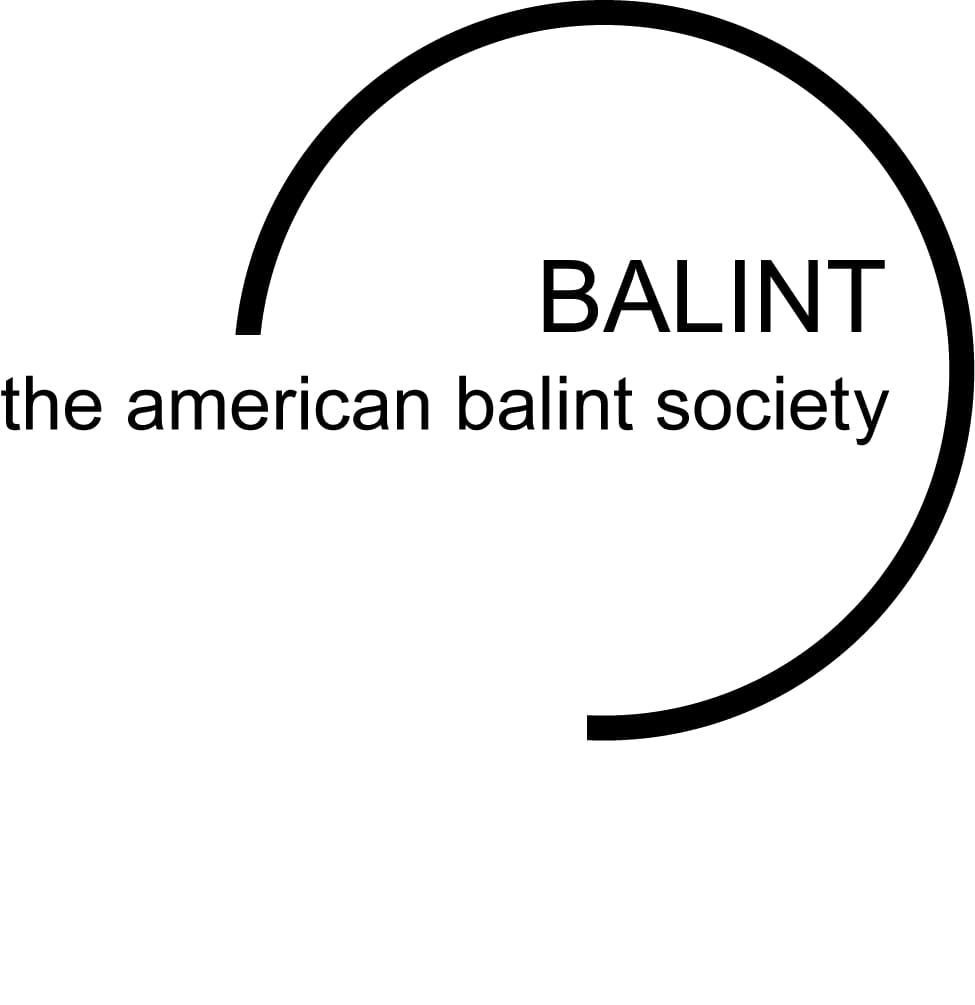23rd International Balint Congress - Virtual Event
Cultivating Understanding and Compassion Through Balint

Sponsored by:

Cultivating Understanding and Compassion Through Balint
The International Balint Federation (IBF) is composed of 28 societies around the globe which represent varied cultures, historical backgrounds, languages and healthcare systems. While we celebrate our diversity, we acknowledge that we have much to learn from each other. Particularly when we face challenging times, it may help us to examine how Balint Groups work and what gets in their way. We will examine the ways Balint promotes the cultivation of understanding and compassion in our varied settings and experiences.
https://www.americanbalintsociety.org/docs/Virtal_IBF_Congress_-_NS_America.pdf
Why attend the Virtual Congress?
We are providing the virtual version of the Congress to include as many people as we can in the invigorating fellowship the International Balint Federation provides. Participating in the virtual version of the 23rd IBF Congress will cost much less than the full week in Boulder. It also provides an answer for those with questions about the health risks of travel and exposure to new environments. It will allow a schedule that leaves you with some work hours free each day, while awarding you as much continuing education credit as possible. Finally, it includes zoom ‘social hours’ you may attend as you wish to visit with your Balint colleagues.
Balint groups and virtual social hours will be hosted at times that are broadly accessible in three regions: North and South America; Europe and the Middle East; Australia/New Zealand and Southeast Asia.
North/South America ScheduleAustralia/New Zealand & Southeast Asia Schedule
Registration Fees
The $400 Virtual Congress registration is limited to 42 people and includes:
- Five (5) longitudinal Balint Group sessions.
- Live streaming of paper presentations.
- access to a recording of each livestream to view at your convenience.
- electronic copies of the proceedings and Ascona book
- Continuing education credit (APA and AAFP/AMA) for Balint Groups and attendance at paper presentations - up to 12 credits possible.
- Opportunities for networking and socializing via Zoom.
Once we reach 30 registrants at the $400 rate, we will open a $200 tuition rate which includes:
- live streaming of presentations
- access to a recording of each livestream to view at your convenience
- virtual social hour
- electronic copies of the proceedings and Ascona book
- APA CE or AAFP CME for attendance at paper presentations - up to 4.5 credits possible.
Registration Deadline - August 1, 2024
Cancellation Policy
Registrants wishing to cancel their registration must do so in writing by the cancellation deadline: July 10, 2024. For cancellations received by the cancellation date, $100 of the registration fee will be withheld for administrative fees, and the refund will occur within 30 days of acknowledgment of cancellation. For cancellations received after the deadline, no refunds will be available. If cancelled by the ABS or hosts due to insufficient registrants, those registered will receive their money back.
Conference Goals
At the end of the conference, attendees will be able to:
- Describe benefits common to members of Balint Groups internationally.
- Contrast local challenges to holding Balint Groups with challenges faced internationally.
- Identify the process and progression of a Balint Group over multiple sessions.
- Define the new perspective of a presenter as a result of the Balint Group process.
Note: a complete list of learning objectives is available on request.
Accreditation
Application for CME credit has been filed with the American Academy of Family Physicians. Determination of credit is pending.
AMA/AAFP Equivalency: AAFP Prescribed credit is accepted by the American Medical Association as equivalent to AMA PRA Category 1 Credit toward the AMA Physician's Recognition Award. When applying for the AMA PRA, Prescribed credit earned must be reported as Prescribed, not as Category 1.

Target Audience
This conference is appropriate for clinicians at all levels of experience with the Balint Group method. It provides the greatest concentration of research and scholarly activity involving Balint Groups in the world. The conference is well-suited to those who are currently leading, expect to lead in the future, or are seeking a better understanding of Balint Groups. The program is appropriate for physicians (primary care, psychiatry, other specialists), mid-level clinicians such as physician associates and nurse practitioners, psychologists, social workers, other mental health care providers, veterinarians, and pastoral care providers.
Grievance Policy
Any concerns should be brought to the attention of the Conference Directors, Kathy Knowlton, tryekk@aol.com , and Allison Bickett, Allison.Bickett@atriumhealth.org .
Livestreaming Schedule
Livestreaming will occur by definition on Boulder, CO time. Because that may occur outside your regular working hours, we will provide a link for the recorded presentations as soon as we can each day.
Monday, September 9th, 13-14:30 MDT (GMT-6)
Introduction and Welcome from IBF President and ABS President.
Monday, September 9th, 14:30 - 16:15 MDT (GMT-6)
ASCONA Presentations and awards.
Paper Presentations:
Tuesday, September 10th, 9 - 10:30 (GMT-6)
The Ethics of Balint Work: Making the Kinship of Humanity Evident. E. Katherine Knowlton (USA).Though we do not use religion to differentiate the members of a Balint group, like other aspects of identity it is likely to be present and unnamed, making it a source of unspoken assumptions or attitudes which may affect a treatment relationship. Within the group religious differences may be contentious or powerful at closing down open minds. This paper explores why that may not happen in Balint Groups, which are a great example of the well-researched finding that diversity enhances creativity and learning.
- From Psychopathy to Compassion. Christian Linclau (Belgium). To understand compassion with a detour through psychopathology and its neuronal mechanisms? How can a Balint group lead health professionals to compassion? That’s what this paper proposes to explore.
- Cultivating Understanding and Compassion Through Balint Work: An Opportunity to Promote Ethical Thinking in Everyday Work. Leonie Sullivan (Australia). This paper focuses on a common thread, based on offering a classic Balint group across a variety of settings. The area of additional relevance and interest to be described, is that of enactment and its relationship in promoting a culture of ethical thinking as part of everyday work in health care.
Wednesday, September 11th, 9 - 10:30 (GMT-6)
- To Intervene or Not Intervene, That is the Question. Albert Lichtenstein (USA). This paper will discuss what can be called non-discretionary interventions that need to be made in order to make a Balint group a Balint group, discretionary interventions that lead to increased understanding of the case but may for various reasons go unspoken, and a process for how a leader might make a decision to intervene.
- May We Speak of the Dead? Andrew Leggett (Australia). This paper offers the experience of a meeting of a Balint clinical reflection group for psychiatry registrars training in a regional city in Queensland, Australia, a meeting in which the leader accepted the offer of a case of a patient who died, in spite of the leader’s prior knowledge of a tradition of reluctance to accept such cases. The author, in asking, ‘May we speak of the dead?’ invites discussion of this question.
- Balint Work in Times of National Trauma: Caring for Oneself in Order to Care for Another. Shai Krontal, Daniella Cohen – (Israel). We describe a Zoom Balint group in times of war that began after the largest terrorist attack Israel has experienced, one that is still considered a national trauma.
Thursday, September 12th, 9 - 10:30 (GMT-6)
- Professional Siblings in Balint Groups. Yuval Shorer (Israel). Themes and emotions brought in Balint groups raise the hypothesis that perhaps the connections we have are stronger than mere colleagues and rather more like the relationship among professional 'siblings'. Through discussing Balint group vignettes and leaders' discussions we try to show that group interactions could echo sibling transference that influences group process and leaders' cooperation.
- You Can Teach an Old Dog New Tricks: Balint in the Veterinary World. Shana O’Marra, Jillian Romm (USA). Similar to human medical care providers, veterinary medical practitioners navigate complex human relationships when providing care to pets. This paper explores the application of Balint groups in addressing the challenges faced by veterinary professionals, focusing on the provider-patient-client relationship.
- All Creatures Great and Small: Cultivating Understanding of Human-Animal Relationships in Balint Work. Veerle Van Geenhoven (Germany). How can doctors and therapists develop understanding of patients whose pets mean the world to them without falling into clichés? How can Balint work contribute to this task and cultivate understanding of cases, in which human-animal relationships appear to play a significant role, while standard Balint work is solely about relationships between humans?
Friday, September 13th, 11:00 - 12:00 MDT (GMT-6)
Conference closing and farewell.

